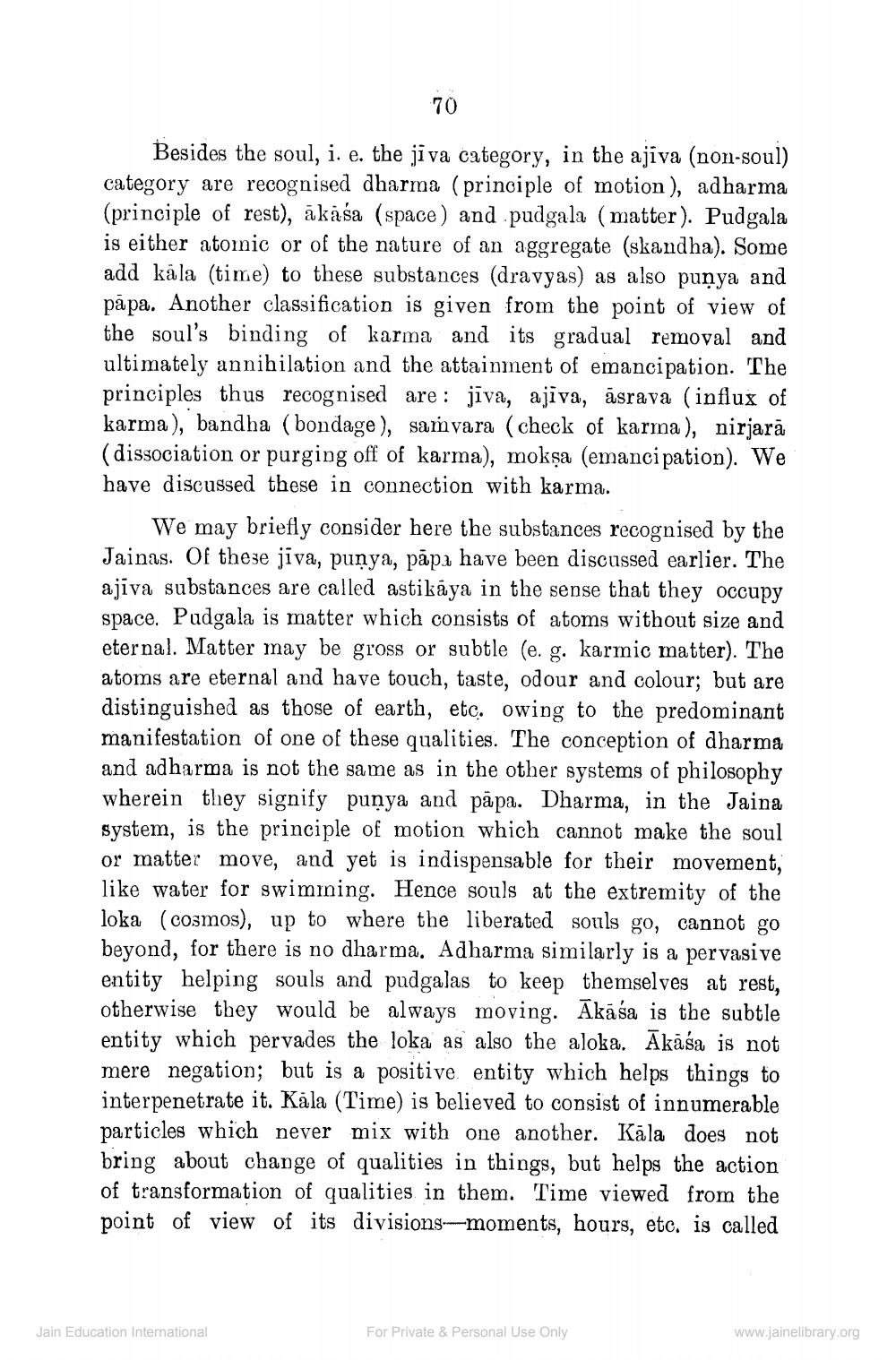________________
70
Besides the soul, i. e. the jiva category, in the ajiva (non-soul) category are recognised dharma (principle of motion), adharma (principle of rest), akāśa (space) and pudgala (matter). Pudgala is either atomic or of the nature of an aggregate (skandha). Some add kāla (time) to these substances (dravyas) as also punya and pā pa. Another classification is given from the point of view of the soul's binding of karma and its gradual removal and ultimately annihilation and the attainment of emancipation. The principles thus recognised are: jīva, ajiva, asrava (influx of karma), bandha (bondage), samvara (check of karma), nirjarā (dissociation or purging off of karma), mokṣa (emancipation). We have discussed these in connection with karma.
We may briefly consider here the substances recognised by the Jainas. Of these jīva, puņya, pāpu have been discussed earlier. The ajiva substances are called astikaya in the sense that they occupy space. Pudgala is matter which consists of atoms without size and eternal. Matter may be gross or subtle (e. g. karmic matter). The atoms are eternal and have touch, taste, odour and colour; but are distinguished as those of earth, etc. owing to the predominant manifestation of one of these qualities. The conception of dharma and adharma is not the same as in the other systems of philosophy wherein they signify punya and pāpa. Dharma, in the Jaina system, is the principle of motion which cannot make the soul or matter move, and yet is indispensable for their movement, like water for swimming. Hence souls at the extremity of the loka (cosmos), up to where the liberated souls go, cannot go beyond, for there is no dharma. Adharma similarly is a pervasive entity helping souls and pudgalas to keep themselves at rest, otherwise they would be always moving. Akāśa is the subtle entity which pervades the loka as also the aloka. Ākāśa is not mere negation; but is a positive entity which helps things to interpenetrate it. Kala (Time) is believed to consist of innumerable particles which never mix with one another. Kāla does not bring about change of qualities in things, but helps the action of transformation of qualities in them. Time viewed from the point of view of its divisions--moments, hours, etc. is called
Jain Education International
For Private & Personal Use Only
www.jainelibrary.org




